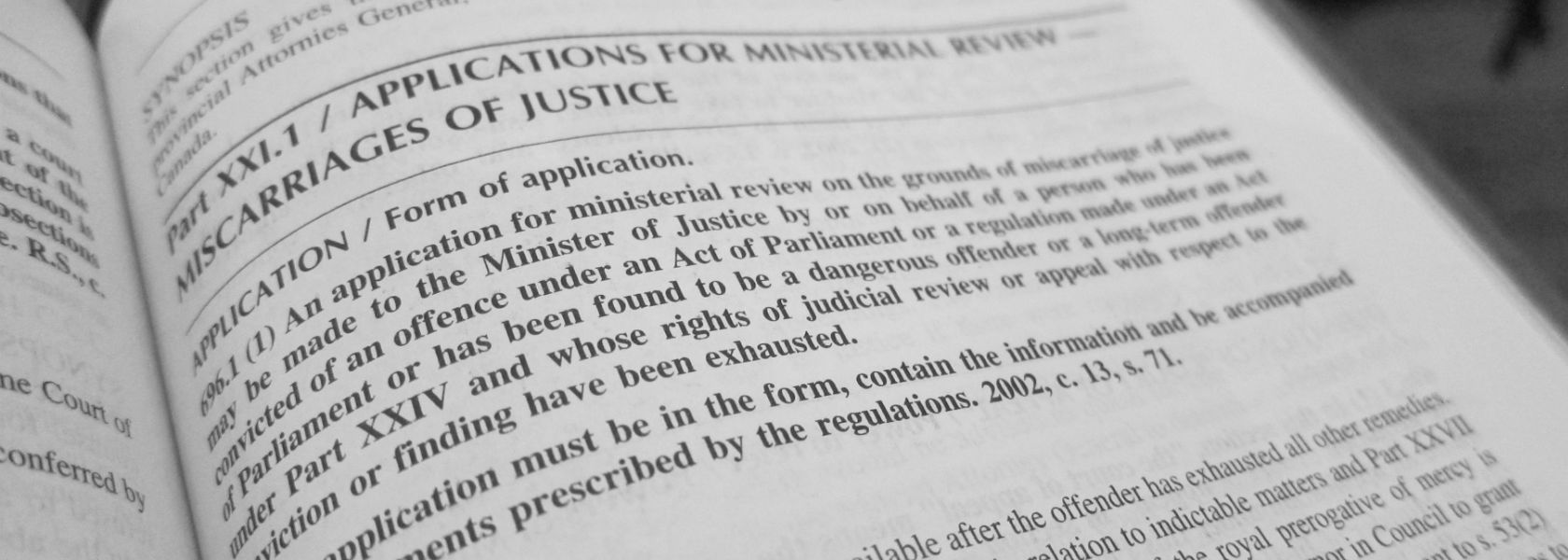Innocence at Stake: The Need for Continued Vigilance to Prevent Wrongful Convictions in Canada

In the fall of 2002, the Federal/Provincial/Territorial Heads of Prosecutions Committee established a Working Group on the Prevention of Miscarriages of Justice in response to a number of wrongful convictions that had been identified and studied across the country. The Working Group was given the mandate to develop a list of best practices to assist prosecutors and police in better understanding the causes of wrongful convictions, and to recommend proactive policies, protocols and educational processes to guard against future miscarriages of justice.
Two years later, the Working Group, composed of senior police and prosecutors from across the country, completed and presented the Report on the Prevention of Miscarriages of Justice. It was released to the public by Federal, Provincial and Territorial Ministers Responsible for Justice at their annual meeting on January 25, 2005. In 2011, the committee released a follow-up report entitled The Path to Justice: Preventing Wrongful Convictions. This updated report provides a summary of developments in the law and the efforts to implement the recommendations provided in the original report.
On April 25, 2019, a comprehensive new report on preventing wrongful convictions, Innocence at Stake: The Need for Continued Vigilance to Prevent Wrongful Convictions in Canada, was released. This report not only updates and adds to earlier recommendations, but also explores new areas of research in wrongful convictions such false guilty pleas and the vulnerabilities of youth, women and Indigenous people.
These Reports comprehensively explore common causes of wrongful conviction, including tunnel vision, faulty eyewitness identification and testimony, the phenomenon of false confessions, the use of in-custody informers, the limits of forensic evidence, and the frailties of “expert” testimony. The findings and recommendations made by commissions of inquiries into wrongful convictions throughout Canada and internationally were collected and examined. Most importantly, the Reports provide clear, comprehensive and practical recommendations for improvements to the criminal justice system which were designed to reduce the likelihood of wrongful convictions.
